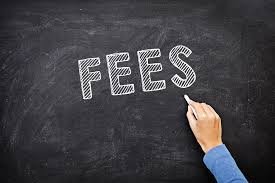Stronger Rules, Clearer Accountability
In a major policy move, the Delhi Cabinet has approved the Delhi School Education (Transparency in Fixation and Regulation of Fees) Ordinance, 2025. With this ordinance, the government aims to rein in arbitrary fee hikes by private unaided schools, addressing a long-standing concern among parents across the capital.
The decision, announced on June 10, 2025, brings a new legal structure to regulate how private schools determine and increase their fees. The ordinance is designed to apply retroactively from April 1, 2025, ensuring schools cannot sidestep accountability through backdated actions.
“This is a long-awaited reform. Parents deserve transparency. Schools cannot treat education like a private enterprise without oversight,” said Delhi Education Minister Ashish Sood during the Cabinet briefing.
What the Ordinance Changes for Schools and Parents
Under the new rules, schools can no longer raise fees at will. Instead, they must seek approval from newly constituted fee regulation committees at three levels—school, district, and state.
Each private school will be required to form a School-Level Fee Committee comprising:
- The school principal
- Two representatives from the management
- Three parents chosen by lottery
- Two teachers from the institution
If any fee hike proposal is contested or rejected, the school may appeal to the District Fee Regulatory Committee. For final resolution, a State Revision Committee—headed by the Director of Education—will act as the top authority. Once fees are approved, they cannot be changed for the next three academic years.
This multi-tier structure brings clarity, transparency, and a formal channel for redress, particularly for parents who have previously struggled with abrupt and steep fee increases.
Refunds, Fines, and Real Penalties
Perhaps the most significant provision is the mandatory refund of excess fees, to be issued within 20 working days. If a school fails to comply:
- First-time violators will be fined ₹1–5 lakh
- Repeat offenders can face fines up to ₹10 lakh
- Delays in refunds will trigger additional penalties every 20 days
- Chronic non-compliance could restrict schools from hiking fees in future years
The ordinance also empowers authorities to recommend disciplinary action or derecognition for schools consistently breaching the rules.
What Sparked the Reform?
Over the past year, protests have intensified against erratic fee increases by several well-known private schools. In one high-profile case, Delhi Public School Dwarka barred students from entering classrooms over unpaid fees, despite a High Court order allowing parents to pay in installments.
Some parents claimed that bouncers were deployed at school gates and that their children faced public humiliation—allegations that turned into formal complaints with the education department.
“We felt completely helpless. There was no way to challenge the fees. This ordinance gives us a voice,” said Priya Narula, a parent involved in the protest.
Political Reaction: Divide Over Process
While the ordinance has been praised by many parent groups, the opposition Aam Aadmi Party (AAP) has criticized the move for bypassing legislative debate. AAP’s Saurabh Bharadwaj argued the ordinance was passed without consultation with parents or educators and that school committees still lacked adequate parental control.
He also pointed out that the ordinance permits unaided schools to propose hikes annually—subject to approval—which may still allow fee inflation if not monitored strictly.
What Happens Next?
The ordinance has been sent for presidential assent. Once approved, it will have the force of law until the Delhi Legislative Assembly passes a full Bill.
Meanwhile, the Directorate of Education is preparing a framework for training and guiding schools in forming the required committees and submitting proposals. The Delhi government has indicated it will remain open to public audits and enforce action against schools attempting to circumvent the process.
Looking Ahead: Regulation With Responsibility
This ordinance marks a significant shift in Delhi’s education policy—one that recognizes the increasing financial burden on middle-class families and the need to balance institutional autonomy with parental rights.
If enforced effectively, it may become a model for other Indian states looking to protect citizens from unregulated privatization in the education sector.
FAQs: Delhi Private School Fee Regulation Ordinance
Q1: Does this ordinance apply to all schools?
It applies to all unaided private schools in Delhi, including those affiliated with CBSE, ICSE, and other recognized boards.
Q2: Can schools still raise fees?
Yes, but only after getting approval from the School-Level Fee Committee and, if needed, the District and State Committees. Approved fees will remain fixed for three years.
Q3: What should parents do if they feel the hike is unfair?
Parents can approach the School Fee Committee first, followed by the District Fee Regulatory Committee. They can also report non-compliance to the Department of Education.
Q4: What if a school refuses to refund extra fees?
Schools will face hefty fines—up to ₹10 lakh—and may lose the ability to propose future hikes. Penalties increase with every 20-day delay in refunds.

